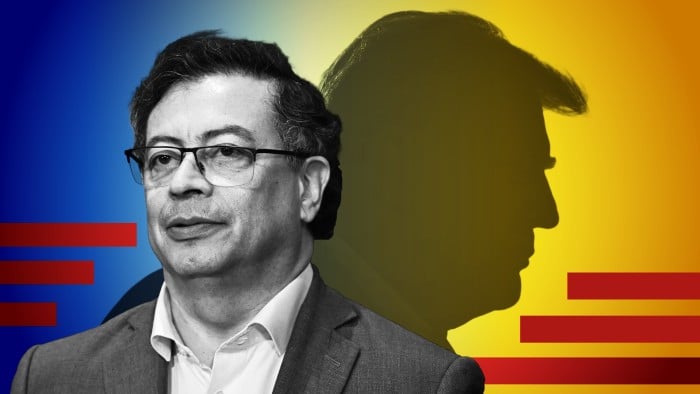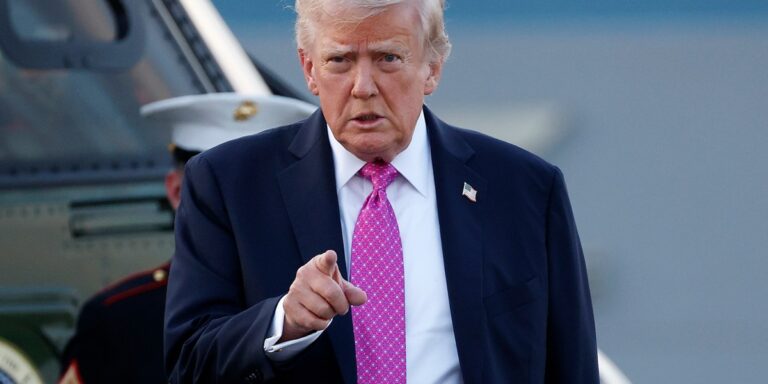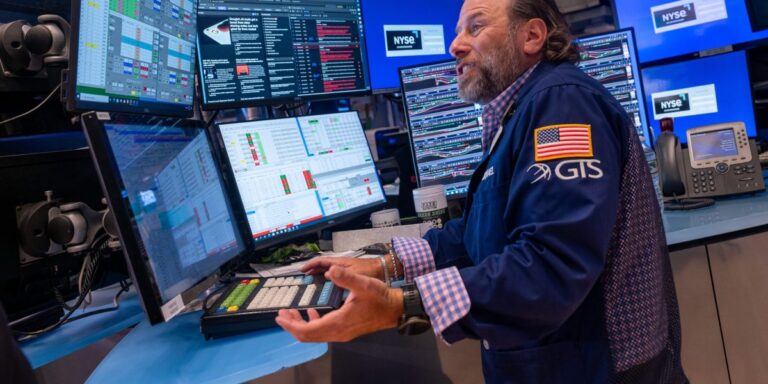[adrotate group="2"]
Latin American leaders are set to convene an emergency summit on Thursday in reaction to President Donald Trump’s policy of mass deportations affecting migrants. This comes in the wake of Trump’s recent imposition of tariffs and sanctions following Colombian President Gustavo Petro’s decision to halt U.S. military flights for deporting migrants. The tension between the nations quickly resolved after Colombia agreed to Washington’s demands.
The confrontation, largely played out on social media, has contributed to rising concerns among Latin American countries, already unsettled by Trump’s aggressive tactics, including threats regarding military control over the Panama Canal and increased tariffs on Mexico, America’s largest trading partner.
A senior diplomat noted that many Latin American embassies in Washington are alarmed, likening the current situation to historical tensions from the late 19th century under President McKinley’s administration.
The dispute has impacted emerging market currencies; both the Mexican peso and South African rand dropped approximately two percent against the U.S. dollar. The Colombian peso fell 1.5 percent before making a slight recovery.
Panama, with its small population and reliance on U.S. trade and investment, faces vulnerabilities regarding Trump’s demands to regain control over the canal. The president has accused China of operating the canal while suggesting that U.S. shipping is being unfairly charged for its use.
In response, Honduran President Xiomara Castro has summoned leaders of the Community of Latin American and Caribbean States (Celac) to discuss issues including migration, environmental concerns, and regional unity.
Experts suggest Latin American leaders are unlikely to acquiesce to Trump without considering both the need for pragmatism and the importance of demonstrating national dignity and sovereignty.
Support for President Petro has emerged from Russian allies Cuba and Venezuela, though Brazil and Mexico, two of the region’s largest nations, have opted to remain silent for now as they plan their approaches carefully.
Criticism has surfaced regarding Petro’s initial handling of the situation, pointing out his previous acceptance of U.S. military flights for deporting migrants. Traditionally, Colombia has been a key ally of the U.S. in South America, heavily depending on American markets for its exports.
With a change in Colombia’s foreign minister imminent, the crisis unfolded as Petro’s team, including his chief of staff, engaged with U.S. officials to mitigate the situation. Business leaders have remarked on Petro’s unpreparedness regarding the full implications of U.S. relations, particularly in terms of economic impact.
In contrast, Mexico’s President Claudia Sheinbaum has been regarded as more adept in her dealings with Trump, balancing public objections to U.S. policies with private compliance on certain issues.
As China expands its influence in Latin America, experts suggest that Trump’s actions may offer China a chance to position itself as a more dependable partner in the region. The upcoming summit could serve as a demonstration to Washington that Latin American nations might turn to China in response to perceived U.S. aggression.
photo credit: www.ft.com
[adrotate group="2"]





